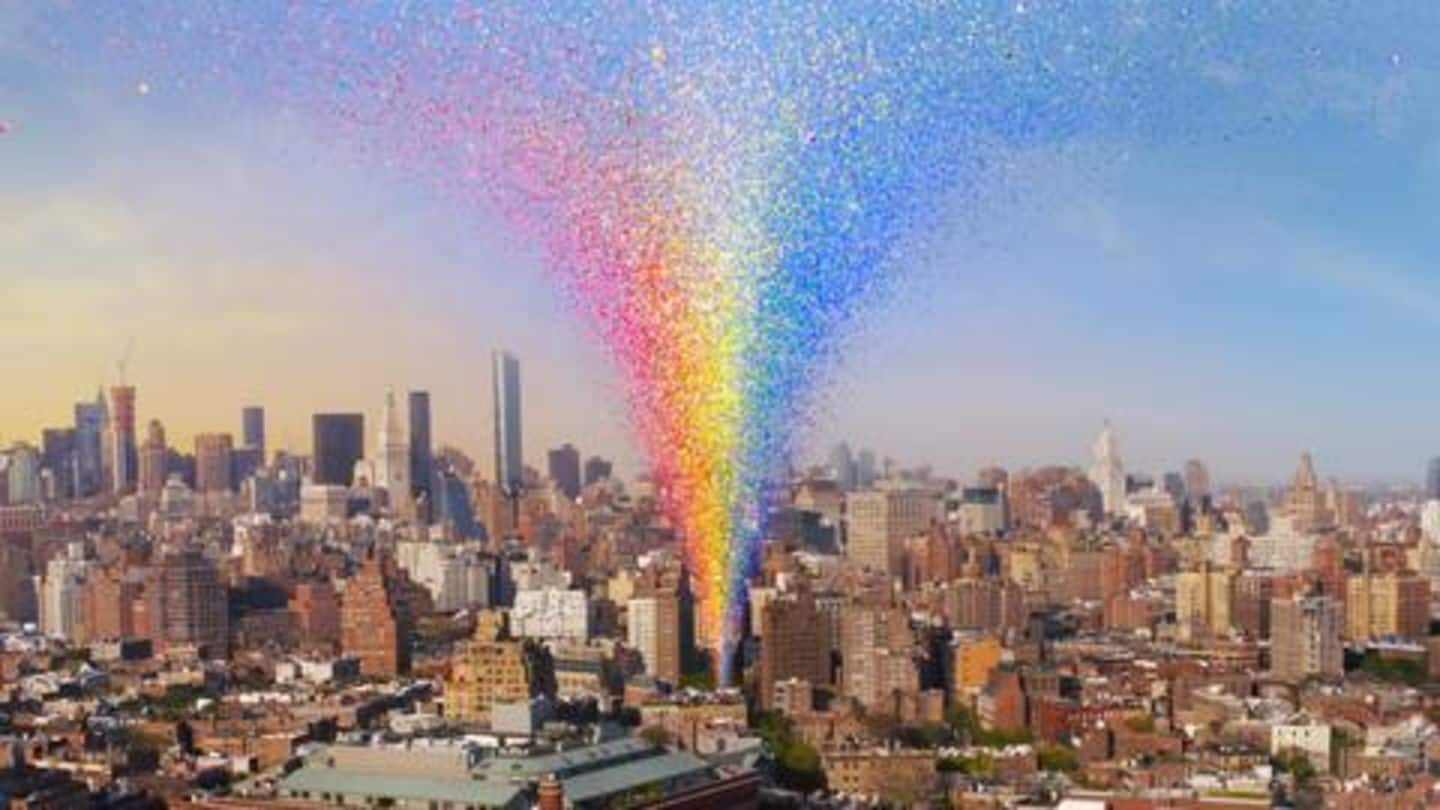
Stonewall Forever: How Google is preventing erasure of LGBTQ+ history
What's the story
If you've been wondering why everything is rainbows and glitter suddenly, it's Pride Month, and a special one. It's the 50th anniversary of the Stonewall riots, which catalyzed the queer rights movement globally. If you didn't know that, that's because, for too long, LGBTQ+ history has been actively erased. But tech giant Google is trying to fix that with a digital monument, Stonewall Forever.
Details
Here's what Google means when it says 'digital monument'
Stonewall Forever is a digital monument wherein you can not just witness, but experience, the untold stories of LGBTQ+ people from anywhere in the world. If you're queer, you can also add your story to the monument. The project aims to bring queer stories to the fore. Meanwhile, if you're in NYC, you can "step inside" the monument through an augmented reality (AR) app.
Other aspects
Google granted $1mn to NYC's LGBTQ+ center for project
Google's philanthropic arm, Google.org, granted $1mn to NYC's Lesbian, Gay, Bisexual & Transgender Community Center for the project, allowing you to follow the timeline of 50 years of Pride and check the global progress in queer rights (and understand the significance of Pride). Google also launched a doodle celebrating five decades of Pride and there's also a documentary to help you trace LGBTQ+ history.
Stonewall
Backstory: What were the Stonewall riots?
For the uninitiated, in 1969, during a police raid, the gay bar Stonewall Inn witnessed an eruption of rage that had been simmering through centuries of oppression. Stonewall was famous among the most marginalized- the Black and Latinx community, the transpersons, drag queens, the poor, male prostitutes, etc. As police started arresting people, the queer community fought back, tossing coins, bricks, and beer bottles.
Aftermath
How the Stonewall riots shifted the mood for queer rights
"When did you ever see a fag fight back? Now, times were a-changin'. Tuesday night was the last night for bullshit," an anonymous rioter was quoted in David Carter's book documenting the riots. The riots continued for five nights. It was instinctive and bold. It was revolutionary. Thereafter, the LGBTQ+, empowered, came together and formed advocacy groups across the US, and the world, too.
Pride parades
In 1970, first Pride marches were held on Stonewall anniversary
On June 27 and 28, 1970, the very first Pride parades were organized in the New York City, Los Angeles, San Francisco, and Chicago, to mark the anniversary of Stonewall riots.
In the wake of the 80s HIV-AIDS crisis genocide, where the United States government sat back and watched as several queer lives perished, the Pride marches grew stronger and wider.
Information
NYC organizing biggest international Pride celebration later this month
Meanwhile, this year, New York will organize the biggest Pride celebration, the WorldPride NYC 2019, to mark the 50th anniversary of the Stonewall riots. It's important to note that Pride marches started as a protest, and have only recently become a celebration in some regions.